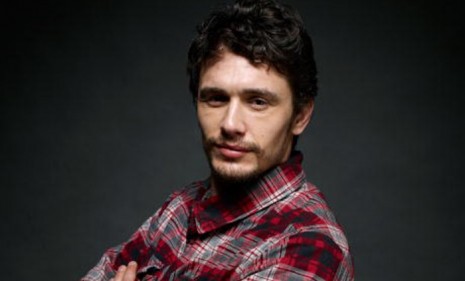James Franco: Why I was a bad soap-opera actor
Even great actors are limited by the collaborative nature of what they do, writes "Eat Pray Love" star James Franco in Lapham's Quarterly

A free daily email with the biggest news stories of the day – and the best features from TheWeek.com
You are now subscribed
Your newsletter sign-up was successful
What makes a great acting performance? In an essay for Lapham's Quarterly, the actor James Franco (Spider-Man, the upcoming Eat Pray Love) writes about how "an actor is in a strange position of being the most visible component of a film with the least control over that final product." Great actors get around that by creating performances so powerful that directors have no choice but to build movies around them — Daniel Day Lewis in There Will Be Blood, for example — but, in some contexts, the actor has few defenses. When I appeared on the soap opera "General Hospital" recently, says Franco, that became obvious. An excerpt:
"It is easy to make fun of soaps, with their melodramatic plot lines, constant exposition, unnatural lighting, swelling music, and lack of action. Most of these aspects are due to the extreme speed at which soaps are produced. With five episodes a week, at least sixty pages need to be shot in a day. That’s a feature film’s worth of material shot every two days. This pace allows for very few takes, usually one....
"This isn’t to say that soap opera performers are worse than film actors, or that their performances are inferior. The soap opera performance should always be perceived in context: it involves actors working in a tradition that soap audiences have come to expect and love. Soap actors are delivering exactly what they are supposed to—they are in tune with their audience and they are not attempting to transcend it."
The Week
Escape your echo chamber. Get the facts behind the news, plus analysis from multiple perspectives.

Sign up for The Week's Free Newsletters
From our morning news briefing to a weekly Good News Newsletter, get the best of The Week delivered directly to your inbox.
From our morning news briefing to a weekly Good News Newsletter, get the best of The Week delivered directly to your inbox.
Read the entire article at Laphams Quarterly.
A free daily email with the biggest news stories of the day – and the best features from TheWeek.com
-
 The week’s best photos
The week’s best photosIn Pictures An Andean god, a rogue squirrel, and more
-
 ‘Zero trimester’ influencers believe a healthy pregnancy is a choice
‘Zero trimester’ influencers believe a healthy pregnancy is a choiceThe Explainer Is prepping during the preconception period the answer for hopeful couples?
-
 AI surgical tools might be injuring patients
AI surgical tools might be injuring patientsUnder the Radar More than 1,300 AI-assisted medical devices have FDA approval